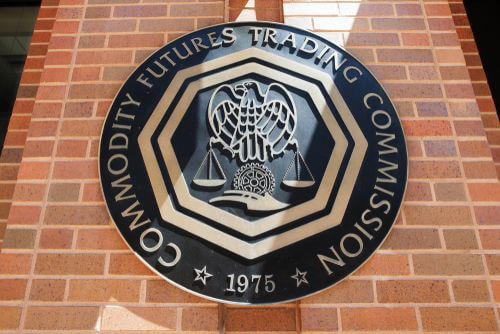
- CFTC’s subcommittee advises on the utilization of DLT-based collateral in trading.
- Approval may expand access to digital assets for smaller market participants.
- Significant ETF inflows indicate rising institutional interest in digital assets.
In a notable advancement for the digital assets market, the US Commodity Futures Trading Commission (CFTC) is considering a proposal that would allow the use of digital ledger technology (DLT)-based collateral in commodities and derivatives trading.
As reported by Bloomberg, a subcommittee from the CFTC’s Global Markets Advisory Committee recently voted in favor of this proposal. If approved, it could simplify transactions and encourage wider acceptance of digital assets in conventional finance.
A move towards mainstream acceptance
Should the main committee grant final approval to the proposal, it may trigger a significant shift in how trading collateral is handled.
The integration of DLT-based collateral would empower traders to execute transactions using digital assets with the same promptness and effectiveness provided by digital ledger and blockchain technology.
This alteration would permit brokers to recognize tokenized assets, such as BlackRock’s USD Institutional Digital Liquidity Fund (BUIDL) token, through systems embedded in the market.
Although the adoption of blockchain-based assets as collateral is already gaining momentum among major financial players like BlackRock and JP Morgan, the CFTC’s possible approval could serve as a catalyst for wider acceptance across the sector.
Currently, only large firms can take advantage of these pioneering financial tools, but this initiative could open opportunities for smaller market participants to reap similar benefits.
Challenges ahead
Despite the encouraging progress surrounding the proposal, several steps must be taken before the CFTC can formally greenlight it. The main committee needs to review and support the subcommittee’s recommendation, and there are no guarantees the CFTC will endorse the proposal as it stands.
There may be regulatory concerns about which entities and blockchains can take part, potentially leading to limitations that could constrain the initiative’s scope.
Moreover, the broader implications of integrating digital assets into traditional finance cannot be overlooked. Recent trends, like substantial inflows into spot Bitcoin exchange-traded funds (ETFs), suggest a growing acceptance and curiosity regarding digital assets among institutional investors.
For example, BlackRock’s Bitcoin ETF recently surpassed its competitors, recording the highest daily inflow of any fund on September 25, continuing a five-day streak of inflows across all spot Bitcoin ETFs in the United States.
This surge in interest may play a role in shaping the CFTC’s decision-making as they weigh the implications of allowing digital assets as collateral.
As developments unfold, stakeholders will closely monitor the continually evolving regulatory environment, which could pave the way for a more integrated future for digital assets in commodities and derivatives trading.








